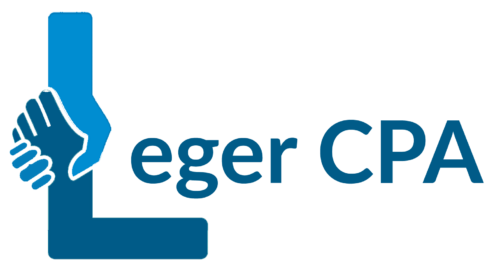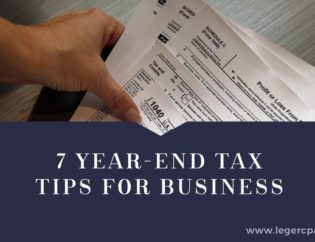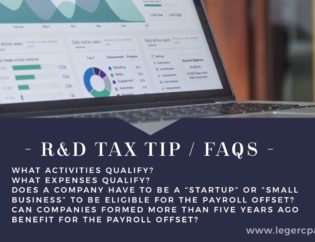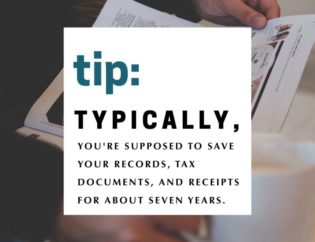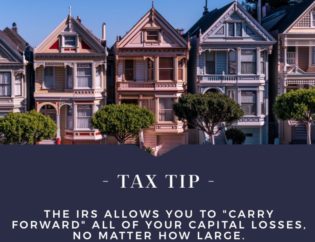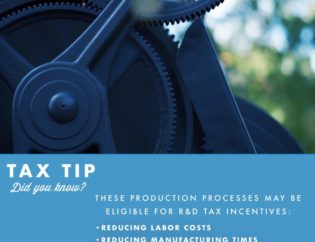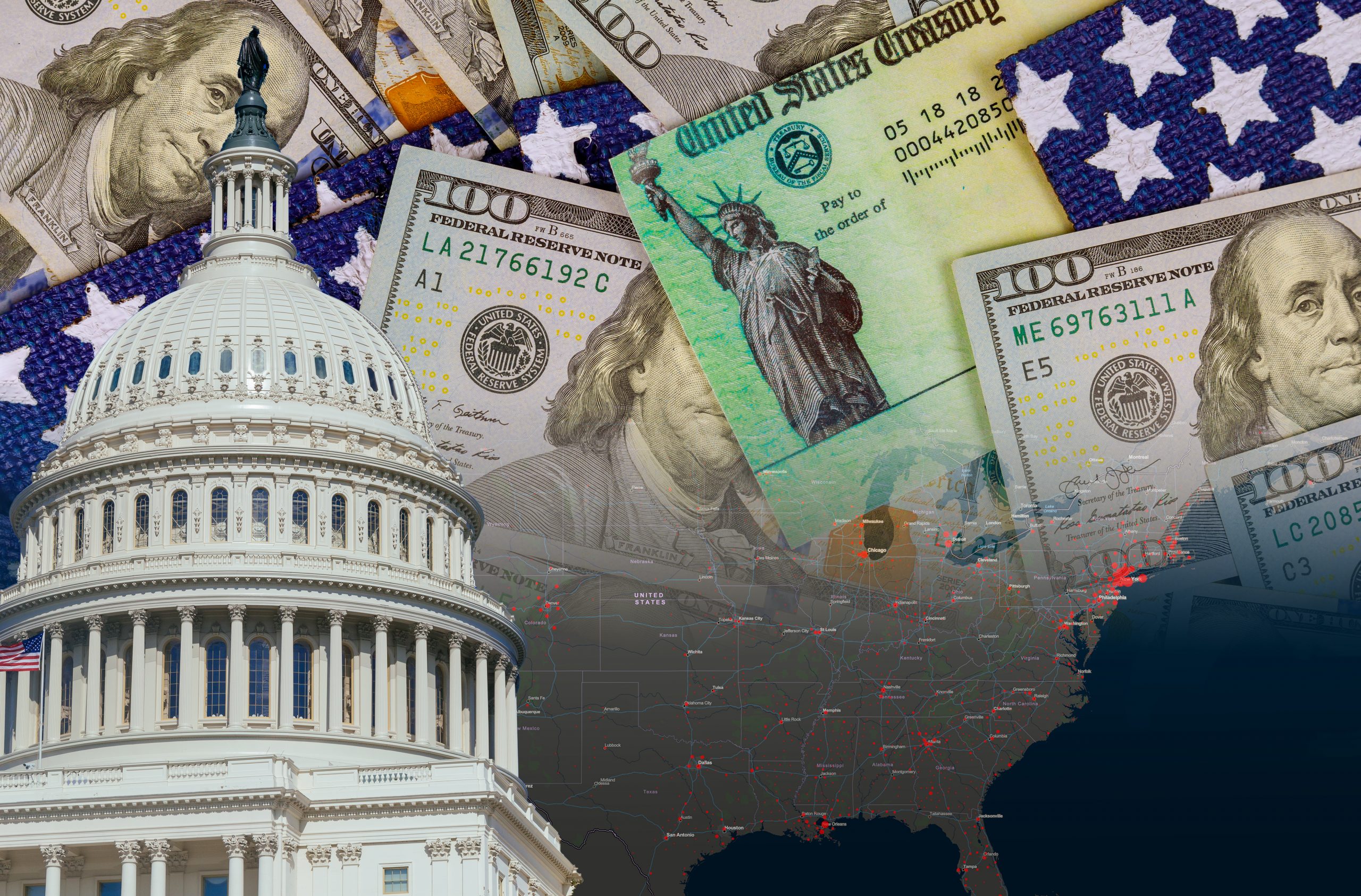
A breakdown of all the federal programs and aid for individuals and small business coronavirus assistance.
Many people are seeking help and guidance on the best programs that are now available to combat the economic impact of this virus. For business owners, the banks are your first source of information for loan applications and relief. The Small Business Administration (SBA) partners with banks on various programs, including the COVID-19 outbreak. Businesses can also work closely with outside payroll processing vendors to look at eligibility for relief from paying employer payroll taxes. The state unemployment office is also a source of information on special programs designed to keep companies open throughout the quarantine period. I have read through most of the 880 page bill and it is very detailed and complex. The summary below is meant to provide highlights of the most pertinent elements of the legislation. Feel free to reach out to me to discuss aspects of the package and how it might be relevant to you.
The $2.2 trillion COVID-19 stimulus package passed by the Senate contains a number of tax provisions affecting both individuals and businesses. Here is a summary of those provisions and FAQ:
KEY TAKEAWAYS
1. Deadlines have changed
The deadline for filing and payment of 2019 federal income taxes has been moved from April 15 to July 15, 2020, by the Internal Revenue Service (IRS).
The IRS confirmed that July 15, 2020, will also be the deadline to make 2019 contributions to IRAs and health savings accounts (HSAs). Deadlines associated with contributions to workplace savings plans are not affected. The state of Massachusetts also extended the deadline for filing and paying individual taxes to July 15, 2020.
2. Individual Relief: Recovery Checks to Most Americans – Direct payments to individuals
The CARES Act includes a provision to send most Americans direct payments of $1,200, or $2,400 for joint filers, plus $500 for each child. The amount of the payments will be reduced for those with higher incomes. For individuals filing taxes as singles, the reduced amount begins at an adjusted gross income (AGI) of $75,000 per year and is completely phased out at $99,000. For joint filers, the reduced amount begins at $150,000 and payment is eliminated at $198,000.
Your AGI will be determined by your 2019 tax filing (or 2018, if 2019 is unavailable).
See Stimulus Calculator for an estimate: CLICK HERE
3. Early Withdrawal of Retirement Funds
The CARES Act offers some help to those with retirement accounts. Required minimum distributions (RMDs) for 2020 are suspended for certain defined contribution plans and IRAs to help retirement accounts try to recover from stock market losses. This includes the first RMD, which individuals may have delayed from 2019 until April 1, 2020.
Affected, eligible participants in workplace retirement plans and IRA owners can take an aggregate distribution in 2020 of up to $100,000 from all retirement accounts without incurring the usual 10% early withdrawal penalty. The affected participant or IRA owner (including a spouse or dependent) would need to either be diagnosed with SARS-COV-2 or COVID-19 or experiencing adverse financial consequences as a result of an event, including but not limited to quarantine, furlough, lay-offs, reduced work hours, no available childcare, business closing or reduced business hours (self-employed), or other factors determined by the Secretary of the Treasury.
In addition, the income tax on the distributions may be spread evenly over 3 years. Or, the distribution may be repaid to an eligible retirement plan within a 3-year period.
Loan repayments for affected participants in workplace retirement plans may be delayed for one year. These changes will be in effect through 2020.
Note that your plan may offer other withdrawal options.
4. Paid sick and family leave available for more workers
Paid leave is required for more employees by the Families First Coronavirus Response Act. These provisions apply to businesses of 500 employees or less. Businesses with 50 employees or less may be exempt from the paid leave provisions.
Eligible employees must be allowed up to 2 weeks (or 80 hours) of paid sick time:
- At their regular rate of pay if the employee is unable to work due to quarantine or experiencing COVID-19 symptoms and seeking a medical diagnosis.
- Or, at two-thirds their regular rate of pay to care for someone who is ill or to take care of a child whose school has been closed as a result of COVID-19.
The CARES Act caps these payments at $200 or $511 per day or an aggregate payment of $2,000 or $5,110, depending on the reason for leave. Family leave was expanded under the Families First Coronavirus Response Act. Affected employees are entitled to up to 10 additional weeks of leave with job protection to recover from illness, at two-thirds their regular rate of pay, to care for sick family members, or to care for school-age children whose school has been closed.
The CARES Act capped family leave payments at $200 per day and $10,000 in aggregate.
5. Unemployment insurance has been expanded
The Families First Coronavirus Response Act provides aid to the unemployment insurance system. The CARES Act also expands unemployment insurance. Under the provisions in the bill, more people will qualify for benefits and the amounts of weekly benefits will be increased.
There are several components in the Act to help individuals affected by the Coronavirus pandemic. These include a temporary Pandemic Unemployment Assistance program through the end of 2020 to provide payments to those not traditionally eligible for unemployment benefits (self-employed, independent contractors, and others) who are unable to work because of the Coronavirus pandemic. The Act also provides an additional $600 per week payment to each recipient of unemployment insurance or Pandemic Unemployment Assistance for up to four months. An additional 13 weeks of pandemic unemployment benefits will be provided to help those who remain unemployed after weeks of state unemployment benefits are no longer available. Funding will be provided to pay the cost of the first week of unemployment benefits for states that choose to pay benefits as soon as someone is unemployed, rather than observing the one-week waiting period before the individual is eligible for benefits. Funding will also be provided to support states with “short-time compensation programs”, where employers reduce employee hours instead of laying off workers.
6. Tax credits for the self-employed may be available
The Families First Coronavirus Response Act includes help for people who are self-employed. It includes a tax credit for sick leave and family leave of up to $200 a day or 67% of average daily pay. It also allows for up to $500 a day for emergency paid sick leave for quarantine or testing for COVID-19, or 100% of average daily pay. See State Guidelines.
7. Federal student loan payments, interest waived
On March 13, the president announced that interest would be waived on federal student loans. Legislation codifying that order is retroactive to March 13. Learn more at Studentaid.gov
The CARES Act suspends payments on federal student loans for 6 months. The act waives any interest on the loans for 6 months as well. The missed months of payments will be recorded as if the borrower had made a payment for the purposes of loan forgiveness programs. The act makes emergency financial aid available to some students, up to the amount of the maximum Federal Pell Grant for the year. Federal work-study payments can be made to qualifying students who have been unable to complete their work under the program due to COVID-19. Students who are forced to withdraw from school due to the outbreak may have the portion of their loan covering that semester canceled. Requirements to return portions of grants or loan assistance will be waived for students who had to withdraw from school as well. A provision in the CARES Act provides an income tax exclusion for individuals who get student loan repayment assistance from their employer for a limited period of time. At the K–12 level, states may apply to waive certain federal education requirements for this school year.
8. More funding available for health care and expanded coverage
Testing for COVID-19 must be covered by private health insurance without cost sharing. Any vaccines for COVID-19 must be covered as well without cost sharing. The CARES Act provides funding for health care providers and suppliers, including extra Medicare payments to hospitals to cover COVID-19 treatment and extra funding to community health centers. The act expands coverage of telehealth services under Medicare. It also allows high-deductible health plans with health savings accounts (HSAs) to cover telehealth services even if patients have not met their annual deductible. For health savings accounts, health flexible spending accounts, and health reimbursement arrangements, the act includes over-the-counter (OTC) medicines (without a prescription) and feminine products as qualifying medical expenses that can be reimbursed by these accounts.
9. Above-the-line deduction for charitable contributions
The CARES Act allows for a $300 above-the-line deduction for charitable contributions made to 501(c)(3) organizations for taxpayers who take the standard deduction or those who itemize. It also relaxes the limit on charitable contributions for itemizers—increasing the amount that can be deducted from 60% of adjusted gross income to 100% of gross income. These changes go into effect beginning in the 2020 tax year. The legislation does not provide for enhanced deductions to 509(a)(3) charitable organizations (commonly known as sponsoring organizations) or donor advised funds.
Business Relief
Employee Retention Credit for Employers Closed due to COVID-19
Employers whose (1) operations were fully or partially suspended, due to a COVID-19-related shut-down order, or (2) gross receipts declined by more than 50 percent when compared to the same quarter in the prior year will be entitled to a refundable payroll tax credit for 50 percent of qualified wages paid by employers to employees during the COVID-19 crisis. For employers with greater than 100 full-time employees, qualified wages are wages paid to employees when they are not providing services due to the COVID-19-related circumstances described above. For eligible employers with 100 or fewer full-time employees, all employee wages qualify for the credit, whether the employer is open for business or subject to a shut-down order. The credit is provided for the first $10,000 of compensation, including health benefits, paid to an eligible employee. The credit is provided for wages paid or incurred from March 13, 2020 through December 31, 2020.
Delay of Payment of Employer Payroll Taxes
Employers and self-employed individuals will be able to defer payment of the employer share of the payroll tax they would otherwise owe. Taxes deferred must be paid over the following two years, with half of the amount to be paid by December 31, 2021 and the remainder by December 31, 2022.
Net Operating Loss Rules Changed
The net operating loss (“NOL”) rules are modified to permit the carryback of losses from 2018, 2019 or 2020 for losses arising in those years, and can be carried back five years. Also, the current provision limiting NOLs to only offset 80% of taxable income is suspended for 2019 and 2020.
Net Business Loss Limitation
The special rules under Internal Revenue Code Section 461 to limit certain business losses is suspended for the 2019 and 2020 tax years.
Qualified Improvement Property Glitch Fixed
A technical correction to the Tax Cuts and Jobs Act (“TCJA”) was included in the Act to remedy the omission of qualified improvement property (“QIP”) from being eligible for bonus depreciation. Under the act, the depreciable life for QIP is reduced from 39 years to 15 years. This fix is retroactive to the date of enactment of the TCJA so it would apply for 2018 and going forward, as well as certain assets placed in service late in 2017. Taxpayers can immediately amend any tax returns for depreciation after the enactment of TCJA that have already been filed for 2017, 2018 or 2019 to claim refunds as a result of this technical correction.
Distillery Exception for Production of Hand Sanitizer
In a nod to distillers who have switched over production from their usual products, the Act waives the federal excise tax on any distilled spirits used for or contained in hand sanitizer.
Exclusion from Tax on Forgiveness of Small Business Loans, Other Debt
For certain Small Business Administration (“SBA”) loans and other covered debt forgiven by a lender, the Act provides that such forgiveness will be excluded from taxable income.
ADDITIONAL INFORMATION:
Small Business Administration (SBA) “Paycheck Protection Program”
- About. This $349 billion lending program is intended to help keep small businesses running and to keep their workers employed. It is modeled after the existing SBA 7(a) program but the loans here are 100 percent guaranteed, as opposed to 75 percent.
- Eligibility. The program generally covers:
- small businesses and nonprofits with fewer than 500 employees;
- hospitality businesses with fewer than 500 employees at each location;
- sole-proprietors, independent contractors, and self-employed individuals.
- Loan Forgiveness. This program provides loan forgiveness equal to the amount spent on payroll (capped at $100,000 in wages), rent, mortgage interest, and utilities for eight weeks beginning on the origination date of the loan. The loan forgiveness provisions will be reduced in proportion to any reduction in employees and to a reduction in employees’ pay of greater than 25 percent.
- Timing:
- The provisions are retroactive to February 15, 2020, and cover loans from that date to June 30, 2020. The retroactivity provision is intended to encourage rehiring.
- The SBA will be required to issue implementing regulations within 15 days of the law’s enactment.
Am I ELIGIBLE? What will lenders be LOOKING FOR? CLICK HERE
Protections against foreclosures and evictions
The bill includes housing protections against foreclosures on mortgages and evictions for renters.
The bill states that anyone facing a financial hardship from coronavirus shall be given a forbearance on a federally backed mortgage loan of up to 60 days, which can be extended for four periods of 30 days each. The legislation says that servicers of federally backed mortgage loans may not begin the foreclosure process for 60 days from March 18.
The bill also does not allow fees, penalties or additional interest to be charged as a result of delayed payments. It includes similar protections for those with multifamily federal mortgage loans, allowing them to receive a 30-day forbearance and up to two 30-day extensions.
Those with federally backed mortgage loans who have tenants would also not be allowed to evict tenants solely for failure to pay rent for a 120-day period, and they may not charge fees or penalties to tenants for failing to pay rent.
Your state or local tax agency may also have made changes that could impact your business. Please visit Employment Tax Guide for information listed by state: http://communications.adpinfo.com/LP=233
For more helpful tax updates and business continuity resources to navigate COVID-19, please call our offices. 978.466.6500
FAQS
When will the stimulus checks be sent out?
Americans should start receiving direct assistance in as little as two or three weeks after the stimulus package was signed into law. However, the quickest time frame in which the federal government has previously been able to issue stimulus checks has been six weeks.
How will I get my stimulus check? Will it be delivered through direct deposit?
For the roughly 70 million Americans who have already provided their direct-deposit bank account information to the IRS, rebates should be pouring into those accounts within weeks of the bill’s passage. But those who haven’t provided such information may have to wait up to four months for their checks to arrive.
Is the stimulus check a loan—and will I have to pay it back?
No. As a direct payment designed to assist Americans through difficult economic times, the stimulus checks are yours to keep.
Are the stimulus checks taxable?
No. However, for Americans who have yet to file their 2019 income taxes, the rebates will need to be based on their 2018 income levels. That means that they could be subject to adjustment once people finally file 2019 taxes that indicate their most recent income levels.
Will retirees and Social Security beneficiaries get stimulus checks?
Yes. The bill allows Americans receiving Social Security—many of whom are retired and don’t file taxes—to obtain direct financial assistance through the coronavirus stimulus package. In such cases, the government would access their data through the Social Security Administration to determine their rebate.
Will Young People Who Live with Their Parents Get a Check?
If a young adult is claimed as a dependent on anyone else’s tax return, they won’t receive a check. The IRS will look at tax returns from the last two years to determine if someone could claim that young adult as a dependent.
Do I Have to Have a Social Security Number to Get a Check?
You must have a Social Security number to receive an economic stimulus check.
What If I Recently Moved?
If you’re set to receive a paper check, it’ll likely be mailed to the last address you had on file. If you recently moved, you should file a Form 8822 with the IRS and a change of address notice with the U.S. Postal Service, according to Kiplinger. We are happy to help our clients with this.
Where can I learn more?
- Small Business Administration’s COVID-19 page
- More info on IRS tax changes can be found here.
- More information on filing for unemployment assistance can be found at the U.S. Department of Labor, though you or your employees will need to file through your state’s unemployment program.
Click Here to Download our PDF Guide
Ron Leger is a Massachusetts based CPA who specializes in the R&D Tax credit and taxes for businesses, individuals, trusts and tax exempt organizations. Contact us today!
